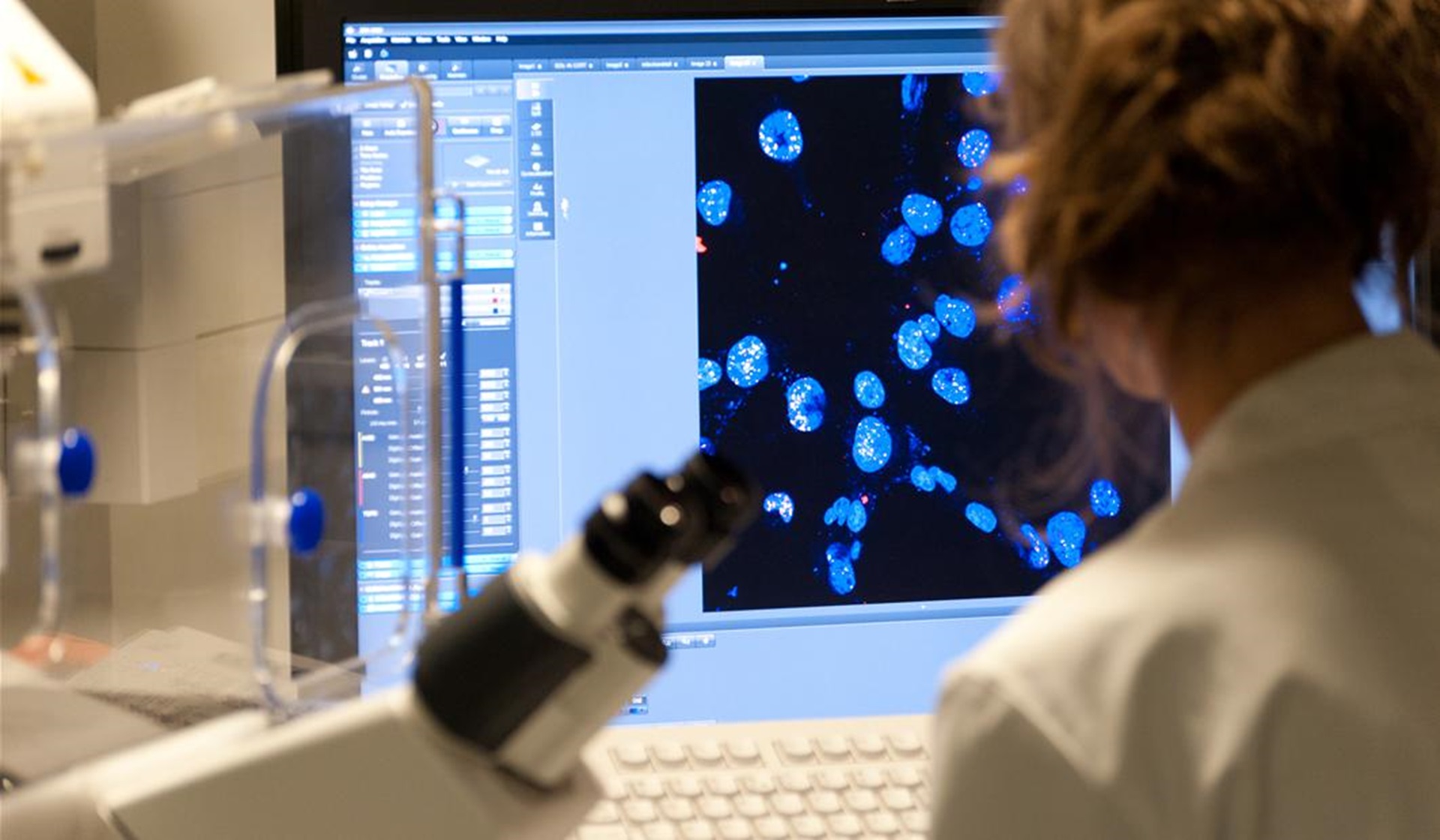Centre for Paediatric Oncology Experimental Medicine
The Centre for Paediatric Oncology Experimental Medicine, a collaboration between the ICR and The Royal Marsden, is identifying and studying the molecular changes underlying the development of childhood cancers and targeting them with innovative new treatments.
Researchers at the centre aim to accelerate the discovery and development of innovative new treatments for children with cancer, by expanding research infrastructure and academic training, producing translational research, through designing and implementing mechanistically driven, biomarker-enriched clinical trials.
The Centre for Paediatric Oncology Experimental Medicine is under the leadership of Professor Louis Chesler, Group Leader at the ICR, and Dr Lynley Marshall, Consultant in Paediatric and Adolescent Oncology Drug Development at The Royal Marsden.
At the Centre for Paediatric Oncology Experimental Medicine we aim to create novel treatments and diagnostic tests, and deliver changes in clinical practice, for children and young people with cancer. We will do this through innovative clinical trials that are driven by our scientific understanding of children’s cancer development and guided by biomarker tests to ensure that we treat those patients most likely to benefit from this approach.

We have several specific aims:
- Building the Infrastructure needed to support Translational Research. With our partners, we will accelerate the acquisition, banking, and detailed analysis of biological samples from patients, in order to build robust data on the molecular landscape of childhood cancers.
- Studying the unique Genetic Landscape of Childhood Cancers. We will conduct detailed studies on the largest possible sets of patient samples to discover and target the causes of paediatric cancer.
- Improving the ability to Detect, Diagnose and Treat Childhood Cancers. We will develop NHS-compatible tests that enable early detection, more precise diagnosis and treatment, and real-time, non-invasive monitoring of treatment response.
- Developing novel treatments for Children’s Cancers. With the ICR’s Division of Cancer Therapeutics and Centre for Evolution and Cancer, we will create novel small-molecule drugs and immunotherapies to target unique vulnerabilities in childhood cancer and combat treatment resistance.
- Developing early-phase Clinical Trials in Children’s Cancer. Together with our clinical partners, we will take our translational research on children’s cancer into innovative clinical trials of novel therapeutics, guided by biomarker tests to predict and monitor drug efficacy.
Developing an academic training programme for young clinicians. We will identify promising and talented academic clinicians in paediatric oncology and create robust training opportunities for them.
Professor Louis Chesler

Professor Louis Chesler leads the Paediatric Solid Tumour Biology and Therapeutics Group at the ICR. He is working to understand the biology of children’s cancers and use that information to discover and develop new personalised approaches to cancer treatment. His work focuses on improving the understanding of the role of the MYCN oncogene.
Dr Lynley Marshall
Dr Lynley Marshall leads the Paediatric and Adolescent Oncology Drug Development Team at The Royal Marsden, focusing on oncology drug development and experimental therapeutics for high risk, poor prognosis malignancies, specifically solid tumours and neuro-oncology.
How we research at this centre
Through our new state-our-the-art centre, we want to speed up advances in treatment for children with cancer. Our centre aims to develop collaborative research projects that will grow and further strengthen links between scientists and clinicians, between the ICR and The Royal Marsden’s Oak Paediatric and Adolescent Drug Development Unit, and with other clinical and research centres.
We have identified a particular need to train more academic clinicians in paediatric oncology to be able to correctly interpret complex research data and integrate findings into their clinical practice. We see significant potential in being able to cooperate more widely in the acquisition, analysis and interpretation of samples and data from patients. If we can share expertise in interpreting large datasets, it should enable us to identify and drug the key biological changes that cause paediatric cancers.
We ultimately aim to identify and target the molecular changes that cause childhood cancer development. We aim to deliver first-in-child cancer drugs together with biomarkers capable of guiding their use in patients into innovative clinical trials. All of the resources we develop and make available through our centre will be focused on this overriding priority - to develop innovative treatments for children with cancer and extend patient survival.

